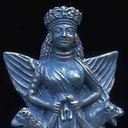Bromelain and N-acetylcysteine inhibit proliferation and survival of gastrointestinal cancer cells in vitro: significance of combination therapy.
Keywords
Abstract
BACKGROUND
Bromelain and N-acetylcysteine are two natural, sulfhydryl-containing compounds with good safety profiles which have been investigated for their benefits and application in health and disease for more than fifty years. As such, the potential values of these agents in cancer therapy have been variably reported in the literature. In the present study, the efficacy of bromelain and N-acetylcysteine in single agent and combination treatment of human gastrointestinal carcinoma cells was evaluated in vitro and the underlying mechanisms of effect were explored.
METHODS
The growth-inhibitory effects of bromelain and N-acetylcysteine, on their own and in combination, on a panel of human gastrointestinal carcinoma cell lines, including MKN45, KATO-III, HT29-5F12, HT29-5M21 and LS174T, were assessed by sulforhodamine B assay. Moreover, the influence of the treatment on the expression of a range of proteins involved in the regulation of cell cycle and survival was investigated by Western blot. The presence of apoptosis was also examined by TUNEL assay.
RESULTS
Bromelain and N-acetylcysteine significantly inhibited cell proliferation, more potently in combination therapy. Drug-drug interaction in combination therapy was found to be predominantly synergistic or additive. Mechanistically, apoptotic bodies were detected in treated cells by TUNEL assay. Furthermore, Western blot analysis revealed diminution of cyclins A, B and D, the emergence of immunoreactive subunits of caspase-3, caspase-7, caspase-8 and cleaved PARP, withering or cleavage of procaspase-9, overexpression of cytochrome c, reduced expression of anti-apoptotic Bcl-2 and pro-survival phospho-Akt, the emergence of the autophagosomal marker LC3-II and deregulation of other autophagy-related proteins, including Atg3, Atg5, Atg7, Atg12 and Beclin 1. These results were more prominent in combination therapy.
CONCLUSIONS
We report for the first time to our knowledge the growth-inhibitory and cytotoxic effects of bromelain and N-acetylcysteine, in particular in combination, on a panel of gastrointestinal cancer cell lines with different phenotypes and characteristics. These effects apparently resulted from cell cycle arrest, apoptosis and autophagy. Towards the development of novel strategies for the enhancement of microscopic cytoreduction, our results lay the basis for further evaluation of this formulation in locoregional approaches to peritoneal surface malignancies and carcinomatosis.


